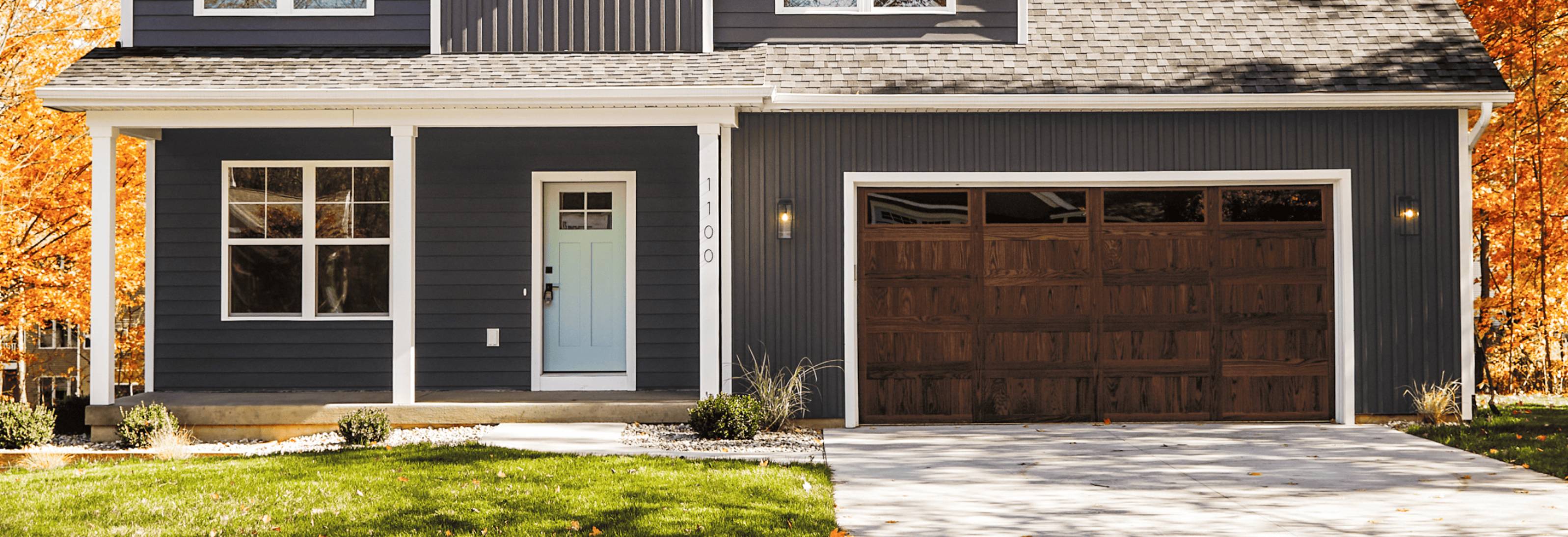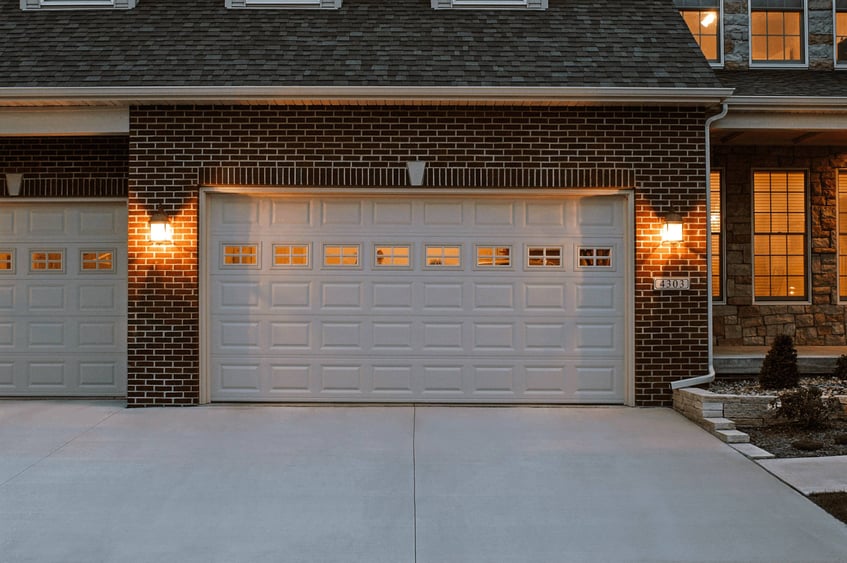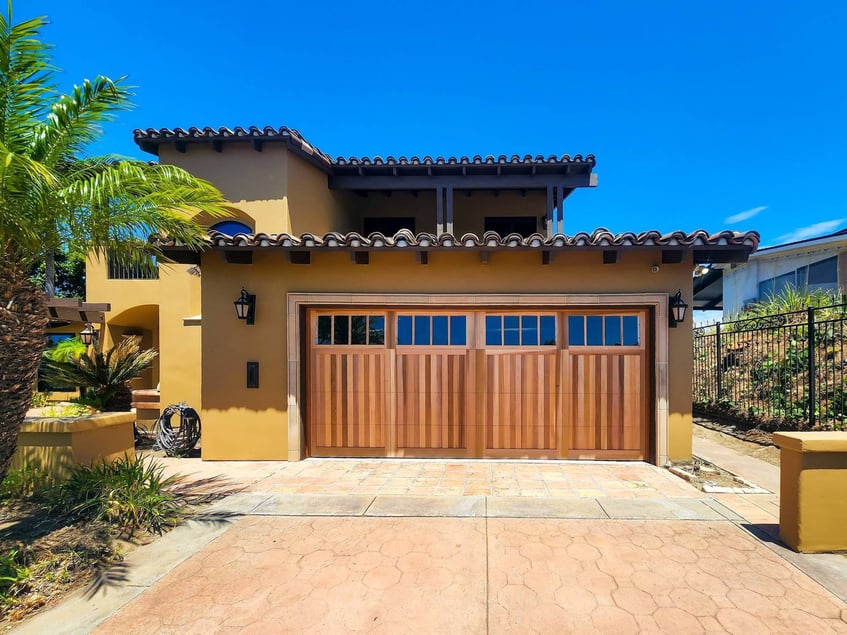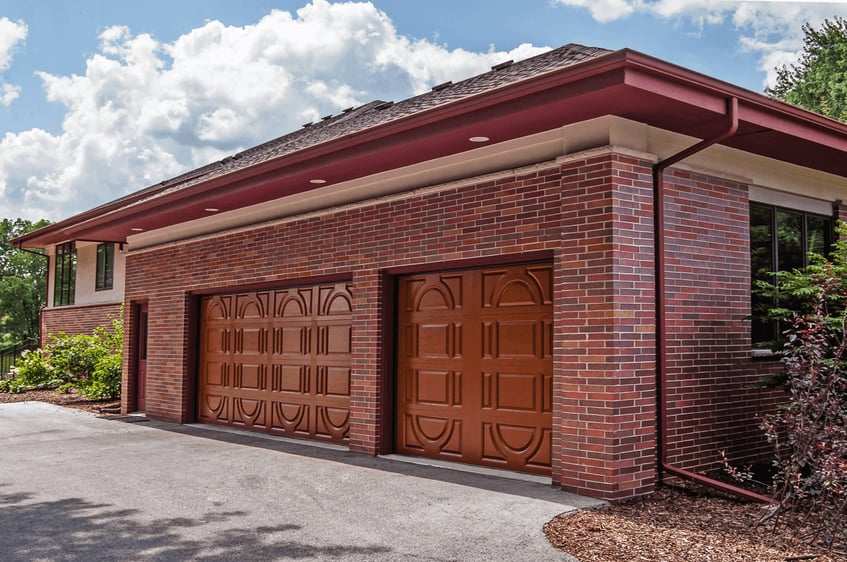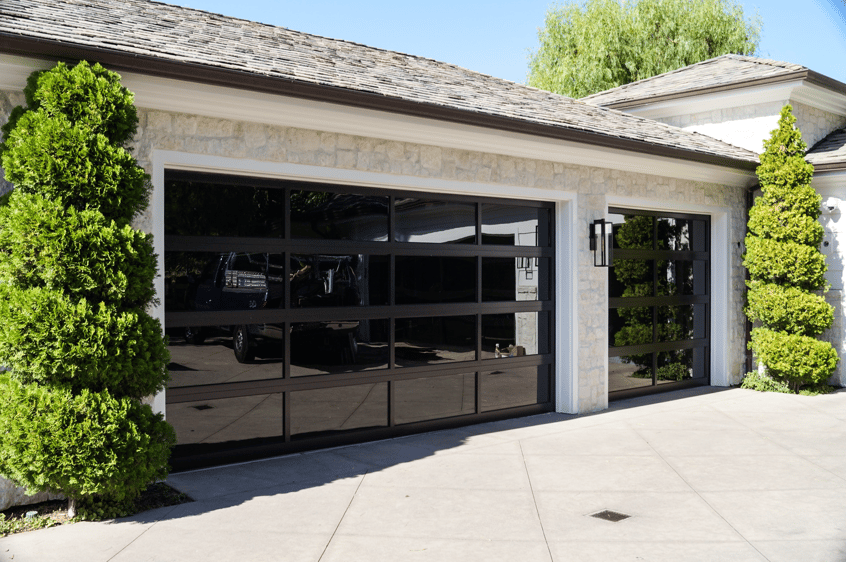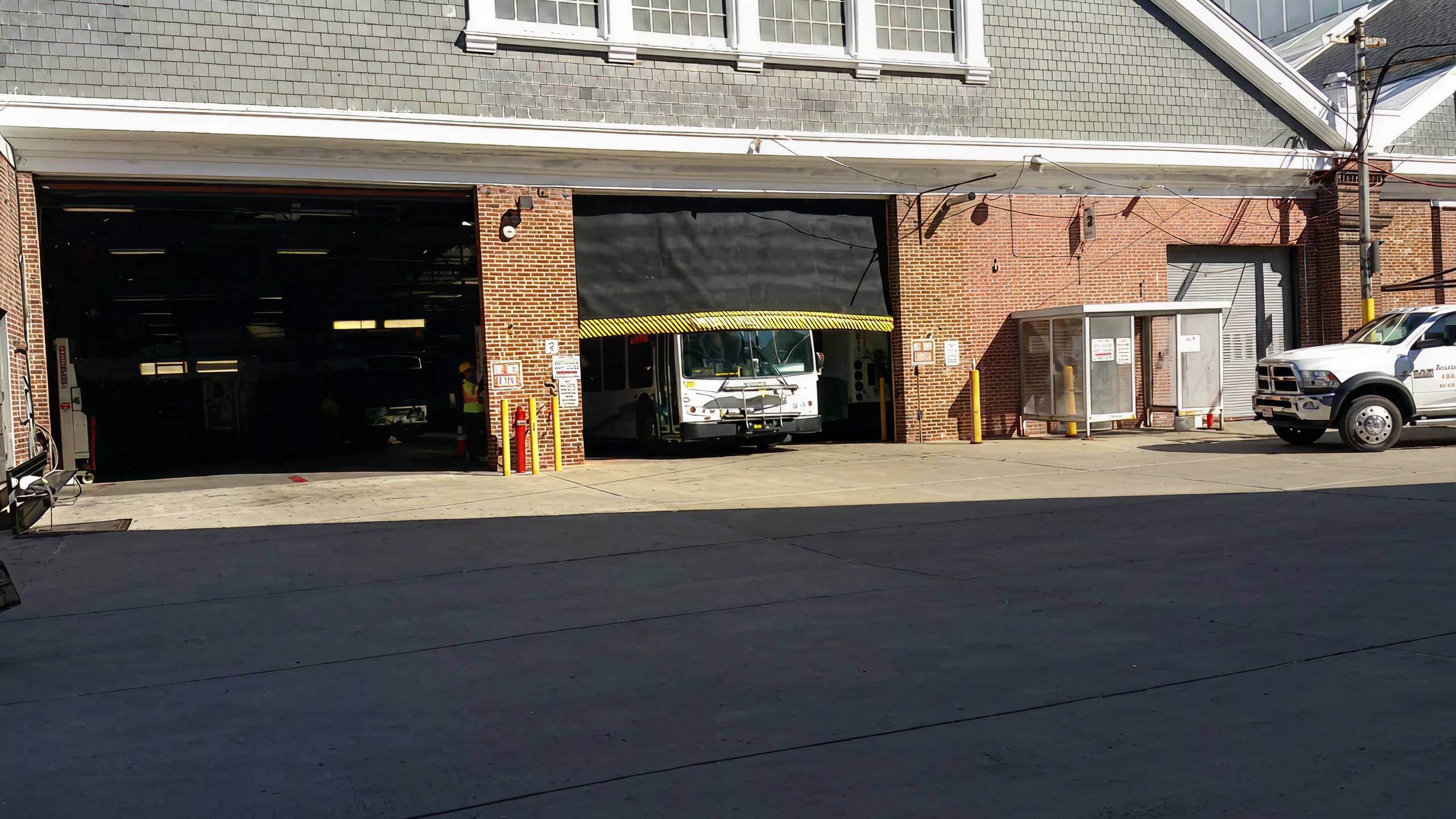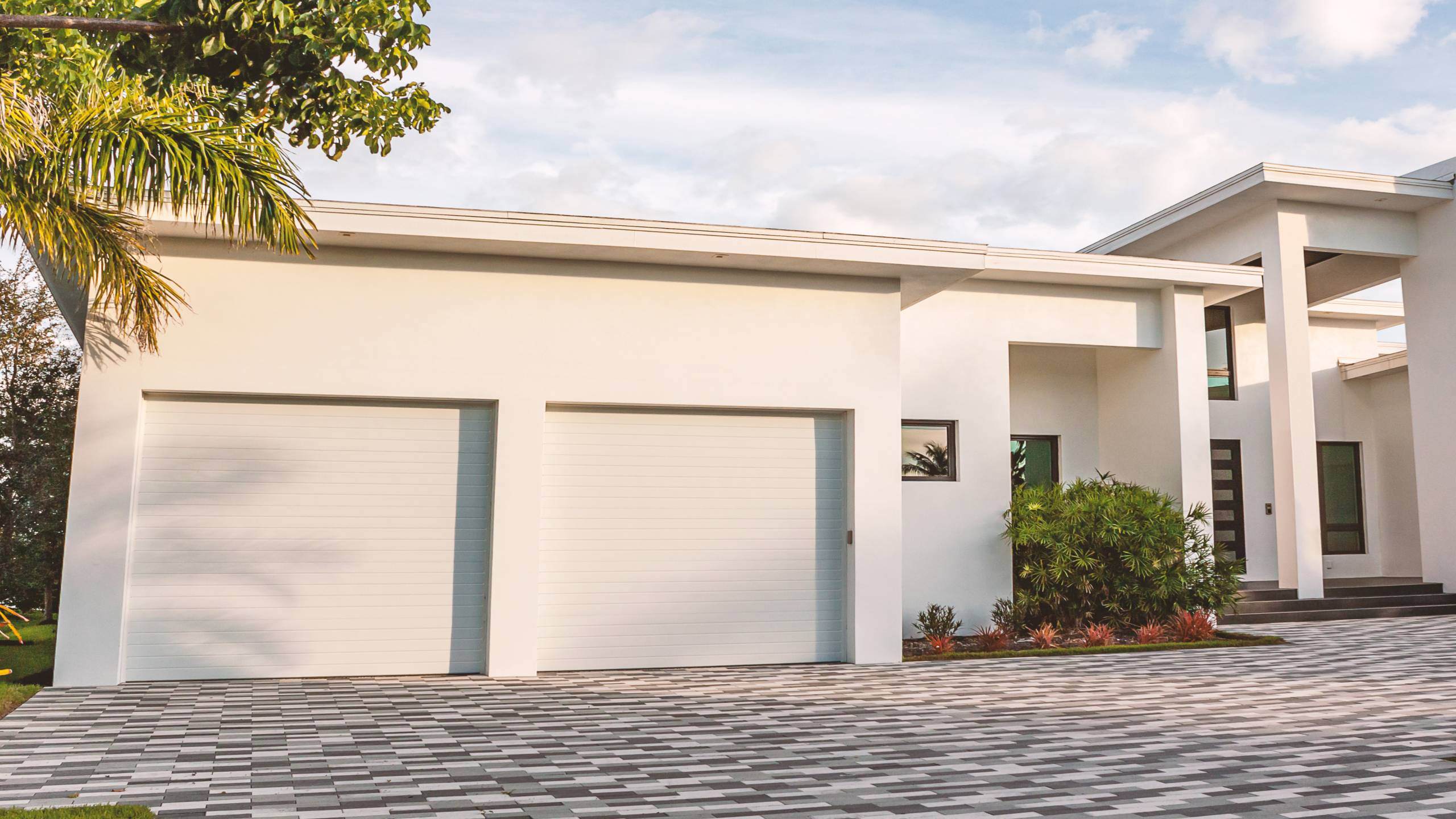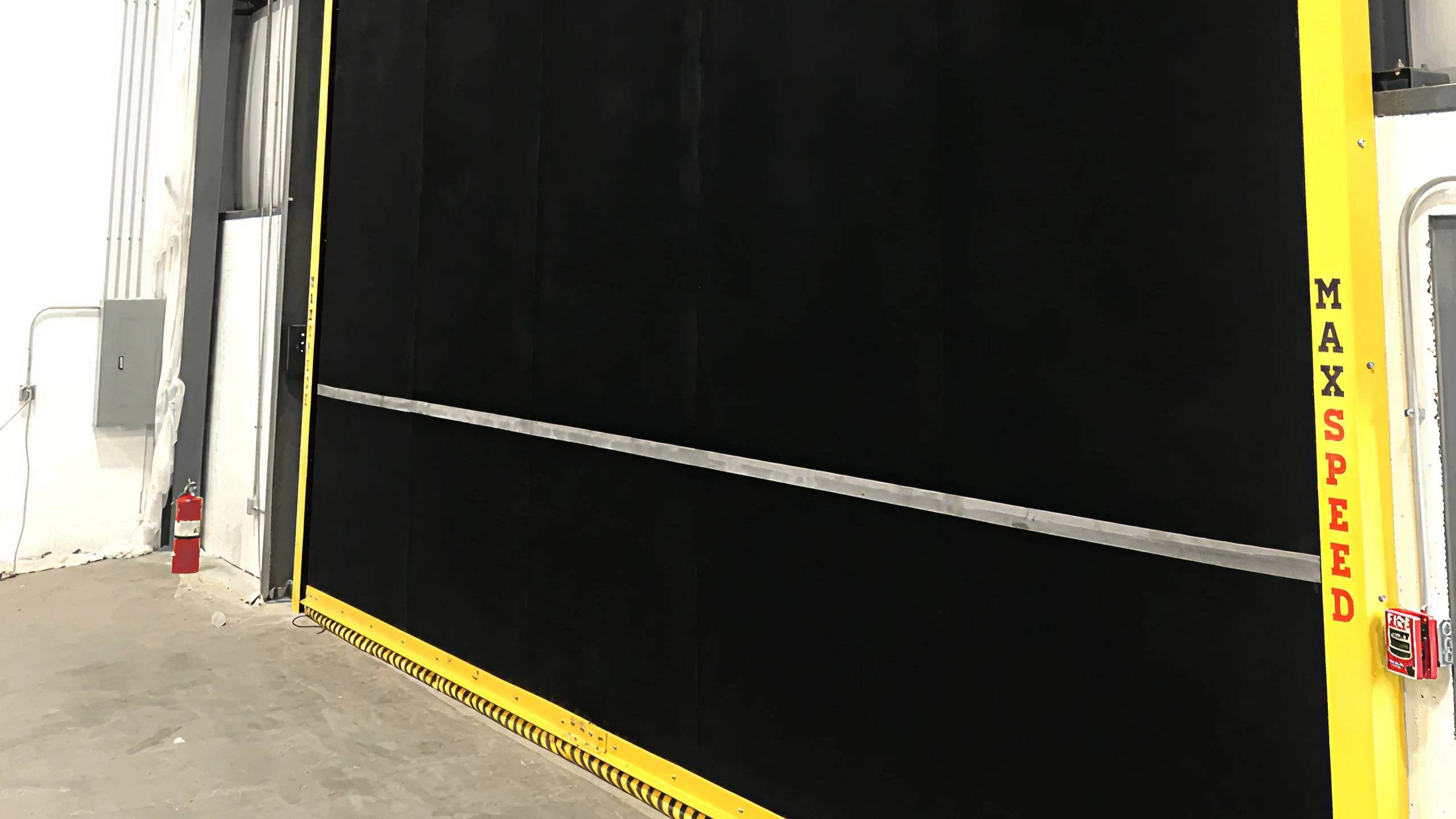Why the right garage door material matters
Your garage door isn't just a convenient way to get into your house; it's a HUGE part of your home's exterior! Garage doors account for 30% of the average home's visible facade. The material you choose affects:
- Durability: How well the door handles daily use and weather conditions.
- Maintenance: The level of upkeep required to keep it looking and functioning its best.
- Insulation: The door's ability to regulate temperature, affecting energy efficiency.
- Aesthetics: How the door complements your home's architectural style.
- Cost: Both the initial investment and long-term expenses.
Garage door material options
Aside from differences in appearance, certain garage door materials will suit specific budgets, climates, and aesthetics. Let's break down each material and see how they stack up.
Steel
Cost: $-$$
Climates: All
Steel is a popular garage door material because of its versatility, durability, and value for money.
Steel garage doors are available in an endless number of design options and provide a cheaper, lower maintenance alternative to natural wood. Add garage door insulation to strengthen your steel door, save energy, and reduce noise pollution.
Compared to wood garage doors, steel is significantly lighter and easier to maintain. If you prefer the look of wood but want the durability and reliability of steel, there are some extremely realistic faux wood options on the market⎯we're a little biased, but our Accents Woodtones doors are a great example.
The primary disadvantage of steel is that it’s susceptible to corrosion and rust. Rusting along the bottom section of a steel garage door is particularly common in areas where excess salt is used for de-icing in the winter months. To help preserve the life of your steel garage door, we recommend washing it at least twice a year to remove grime and dirt.
5 maintenance tips to maximize the lifespan of your garage door
Pros |
Cons |
|
Low maintenance Durable Various style options Economical |
Moderate resistance to dents Not a natural insulator Scratches can rust if not fixed quickly |
Wood
Cost: $$$-$$$$
Climates: Best in mild climates
Wood garage doors provide any home with a sense of timeless elegance. As a renewable resource, wood offers an eco-friendly option to consider when purchasing a new garage door.
Available in a variety of overlay carriage house garage door designs, wood types, and customization options, wood garage doors are an excellent option for homeowners wanting a custom, unique look.
In addition to the upfront cost of a wood garage door, it’s also important to consider the maintenance costs required to preserve its beauty. Without proper, regular maintenance, a wood door will begin to fade, rot, warp, or chip.
Wood garage doors best suit mild climates. Drastic changes in outside temperatures and frequent contact with moisture (from rain, snow, or humidity) can cause wood to expand and warp as it absorbs moisture.
Pros |
Cons |
|
Beautiful, rustic look Natural insulator Various overlay designs Field-staining to achieve your desired look |
Heavy and difficult to operate manually Requires regular maintenance Can warp, swell, or rot |
Fiberglass
Cost: $-$$
Climates: Warm, humid climates
Fiberglass is an often-overlooked residential garage door material, but it’s a great alternative to wood as it closely mimics its defined grain texture. Unlike wood, however, fiberglass garage doors don't shrink, warp, or crack, making them ideal for homeowners living in humid climates.
Available in both overlay carriage house garage door and raised panel garage door designs, fiberglass provides an economical, low-maintenance alternative to wood. Because fiberglass is semi-transparent, it will also allow natural light into your garage.
Fiberglass best suits warmer climates but isn't recommended for windy or coastal areas. High winds can damage fiberglass and cause the door to make a noise that many find irritating. Another important consideration is that you can't repair fiberglass – the only option is to replace the door.
Pros |
Cons |
|
Won't warp, shrink, or corrode from moisture Lets light into garage Won't contract or expand from temperature changes Low maintenance |
Must be replaced if damaged Brittle and susceptible to wind damage Can crack or yellow with age |
Aluminum
Cost: $$-$$$
Climates: All climates, but aluminum is sensitive to extreme heat - harsh summers can reduce the durability of this material.
Aluminum garage doors designed with glass panes for a full view make an eye-catching, contemporary addition to your home.
Aluminum is resistant to corrosion, lightweight, easy to customize, and less likely to warp, crack, or rot than wood doors. It’s also good at withstanding exposure to UV rays without fading or deteriorating.
Compared to steel, it’s less durable. For example, strong winds or hail can cause dents in aluminum, which are difficult to fix without a specialist.
Pros |
Cons |
|
Naturally resistant to rust and corrosion Customizable Allows max. light into garage Low-maintenance |
Low R-value Not fully waterproof Less durable than steel Privacy issues depending on glass selection |
Struggling to choose between garage door materials?
You'll understand residential garage door materials and their benefits now, but If you're unsure or need any help deciding which will work best for your home, talk to an expert.
Our local dealers are always here to give you advice, whether you're ready to buy or just researching.
/Rectangle%201.png) Planks
Planks
/Rectangle%201%20(3).png) Sterling
Sterling
/Rectangle%201%20(4).png) Skyline flush
Skyline flush
/Rectangle%201%20(5).png) Shoreline
Shoreline
/Rectangle%201%20(1).png) Overlay carriage house
Overlay carriage house
/Rectangle%201%20(9).png) Raised panel
Raised panel
.png) Stamped carriage house
Stamped carriage house
/Rectangle%201%20(2).png) Stamped shaker
Stamped shaker
.png) Full-view aluminium
Full-view aluminium
.png) Recessed panel
Recessed panel






